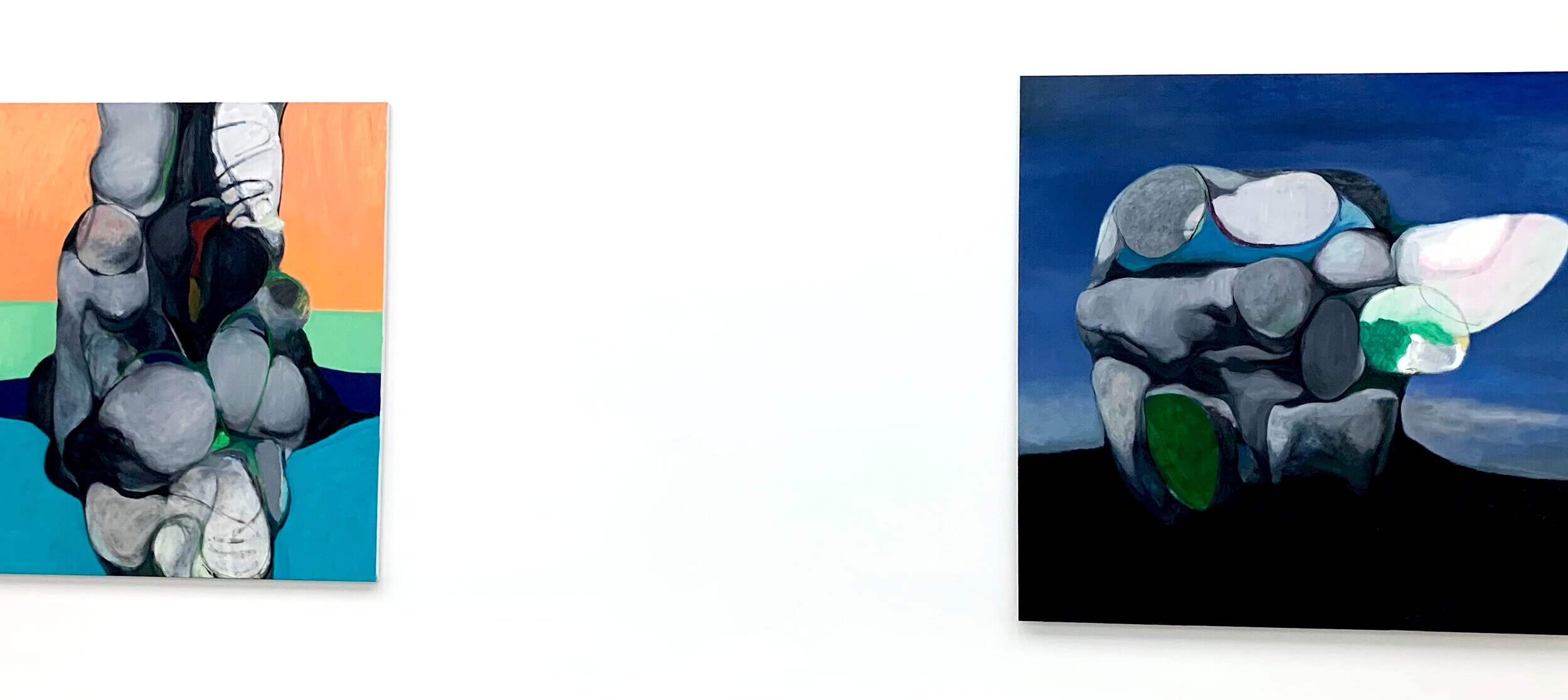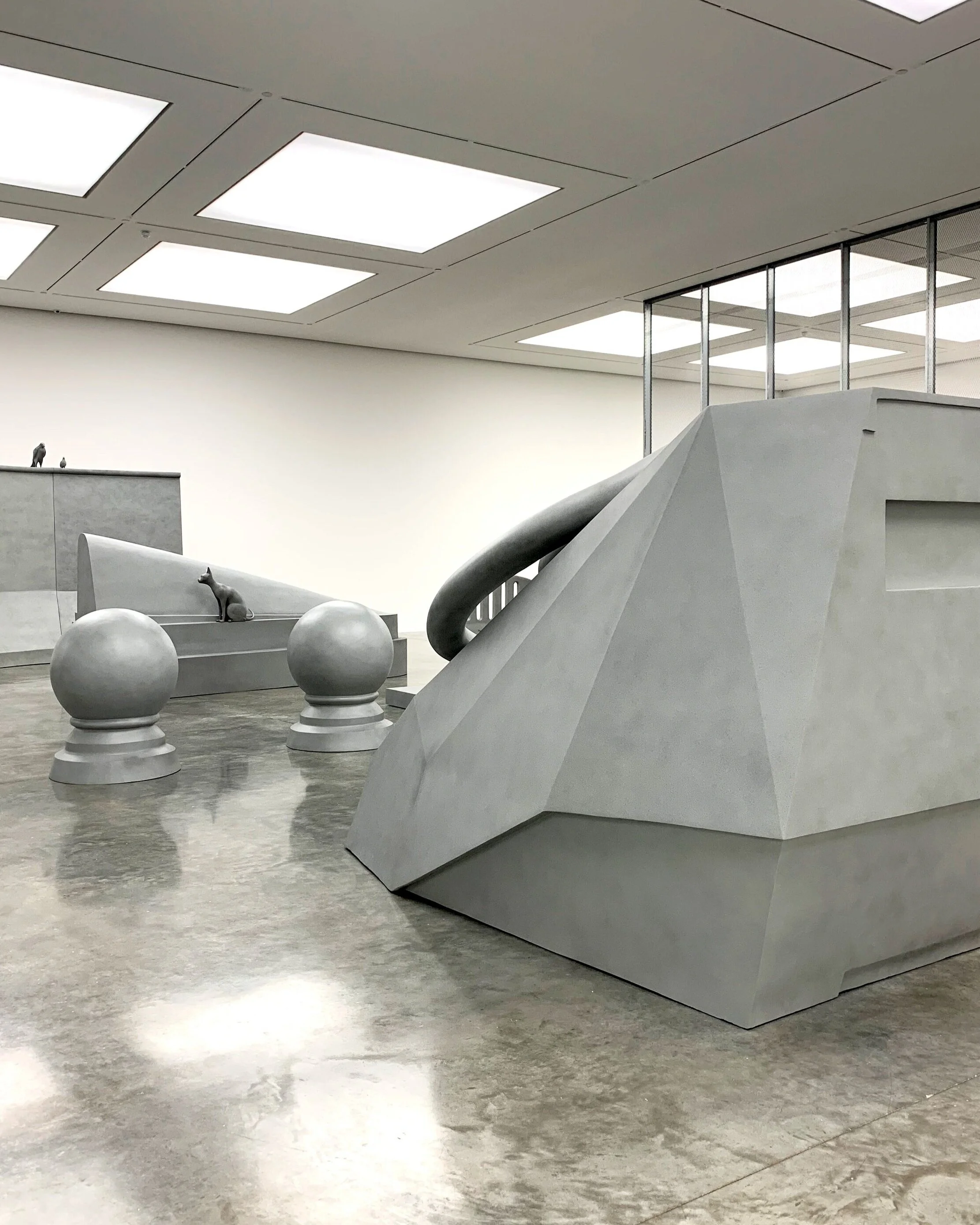Nudity and the urban landscape - Liu Wei’ s art in White Cube
We live the future some science fiction novels had suspected years ago. Electric cars and deadly viruses and people with masks in the stores and underground, web art currencies and liberation from gender and race barriers. If not totally there very near. With the good and the bad stuff. The empowered women and #blacklivesmatter emancipation movements, the gender equality and renewed human rights struggles but also the new rise of conservatism, the extended police violence, the urbanization of most parts of the earth, the environmental crisis, the human exploitation of every form of life and the fatal health results we now experience. Far, far from a utopia although with some considerable gains.
Reality feels fictional today and Liu Wei’s art, which seeks to be in the gap between reality and non-reality as he says, seems more relevant than ever. I got into the White Cube with no expectations, didn’t know much of his work and hadn’t read the press release (I don’t do it frequently but sometimes the surprise is invigorating). I came across immense male art (huge architectural sculptures give me always this impression), peculiar sculptures whose every angle gave another view, where different forms and materials were mingled like melting in one another, paintings in the same logic, like processing different shapes in one, and a brutalist environment landscaping an urban hybrid area of today and ancient times with no people around but only animals.
Liu Wei’s art has a purity that is not of my taste. His artworks are perfect objects, beautifully made and excellently serving his ideas and philosophical thoughts. Like out of sci-fi imagery they give a compact glimpse of the future’s outline - in the timeline we are now. It can be considered optimist or not, after all, it is just a variation of the present perspectives.
My main problem with his art is the absolute absence of feeling. Their coldness and estrangement.
Wei’s subject is Nudity according to Agamben. The nude life for the Italian philosopher is this state of life we share with animals. It is the state of living below the garment of social life. Confronting the pandemic restrictions, the philosopher had claimed within his arthrography, that lockdown, and other restriction measures just preserve this exact nude state. A life without other meaning than life itself.
Wei is researching all this nudity, the empty human landscapes, the sudden unification of different life (and non-life) forms as (according to Agamben) life is coming back to just this animalistic form of life without socializing.
Life within perseverance.
Wei finds the uncunny qualities of the non-usable structures, the absurdity of the sophisticated design in a humanless environment, this way intentionally or unintentionally he focuses on anthropocentrism: All these vast urban complexes made from humans are only for humans, animals among them seem paradoxes, intruders. Humankind made their barriers estranging themselves from the rest of nature and nature from them.
But isn’t the very same condition of the pandemic a result of this anthropocentrism?
Contemporary pseudo-democratic republics took advantage of the pandemic to impose totalitarian measures without taking actual drastic protective action for their people. That is the ugly truth. Humans are to blame in so many different aspects. So many deaths and oversights and inefficiency, affecting eventually mostly the less privileged in spite of the universality of the virus. Agaben’ s nudity is about biopolitics and the differentiation of human life’s value according to sovereignty’s criteria.
However, the one who gains from all this current pause of human outside activity is nature. Nature took a breath while humankind supposedly took a step back from its “dressed” life. But did it? I mean all these endless lockdown days the socializing procedure may be moved mostly from live meetings to virtual ones but it didn’t stop. In Western societies, people didn’t stop working and reading and communicating so no nudity.
The actual nudity remained for the non-privileged. The ones without the luxuries of working, studying, reading and digitally communicating, the ones who didn’t even have the possibility to follow the measures, they had to work or they were in refugees camps or prisons or they didn’t have the means for accurate knowledge about the condition. And it is exactly there that biopolitics and nudity are noticed indicating the contemporary mentality of power.
Let’s face it. The virus may not be good for the human race but it may be good for the environment. And this good could be even more important.
Empty urban edifices like old monuments remind me of human vanity. Of material or conceptual structures serving only humans, or men, or western white people, or the most privileged ones.
Anthropocentrism after all is the first form of discrimination.


